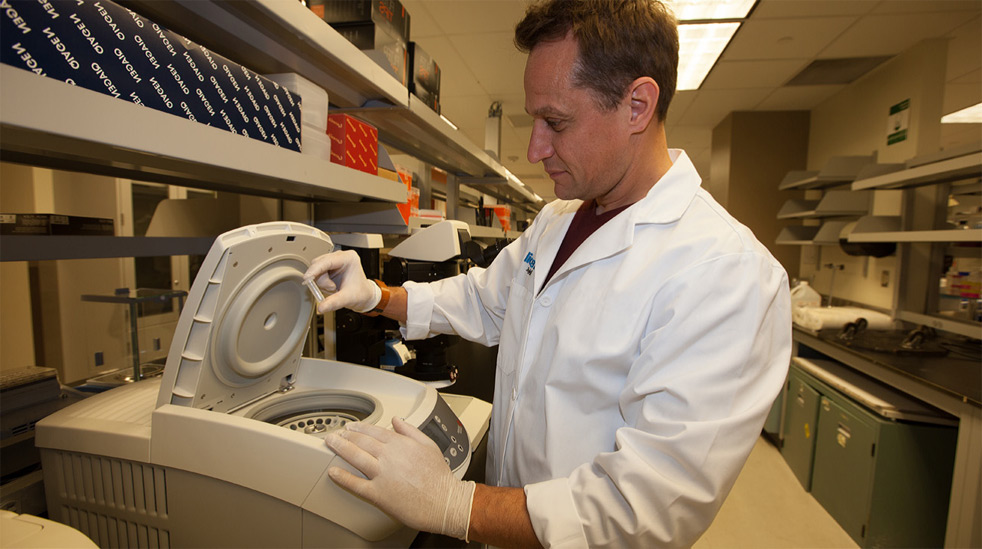
Glaucoma is a serious eye disease that leads to irreversible blindness, but those affected may soon be able to avoid that fate. The disease is the result of degeneration of the ganglion cells, which connect the retina to the brain. The standard treatment is to try to slow down the cell degeneration by decreasing the elevated inter-ocular pressure.
Senior Scientist Dr. Michael Reber and his team at the Donald K. Johnson Eye Institute at Toronto Western Hospital are developing an innovative new approach to improve treatment. “Our approach is to find a way to help those ganglion cells regenerate or slow down their degeneration,” says Dr. Reber.
In 2011, Dr. Reber was part of a study exploring how the use of silk nanofibres could promote the survival and repair of injured ganglion cells. “We found that these silk fibres not only gave the cells physical support, but the cells also used nutrients that can be added to the fibres,” he explains.
Partnering with engineering professionals
The question was how to reliably produce those silk fibres on a massive scale. “At the time it was being done using an old-fashioned method that wouldn’t allow you to produce silk fibres in big quantities,” says Dr. Reber.
To advance his research, Dr. Reber is partnering with engineering and industry professionals to develop a 3D bioprinter to produce these nanofibres. “It uses a procedure called electrospinning,
which pulls a droplet of liquid silk through a very high voltage field into very fine strings with a diameter of below one micron, relevant to the size of the ganglion cells in the retina,” says Dr. Reber.
The goal of Dr. Reber’s team is to eventually transplant these enriched nanofibres into people living with glaucoma and other retinal diseases to slow down cell degeneration and prevent blindness. 3D printing will certainly help push this forward,” he notes.
